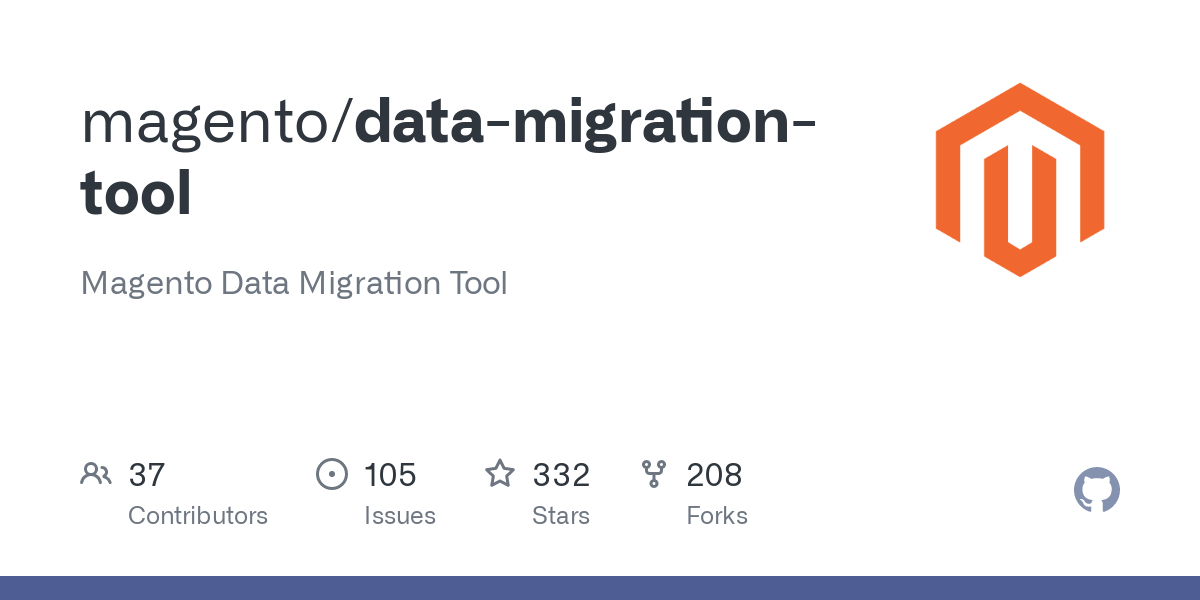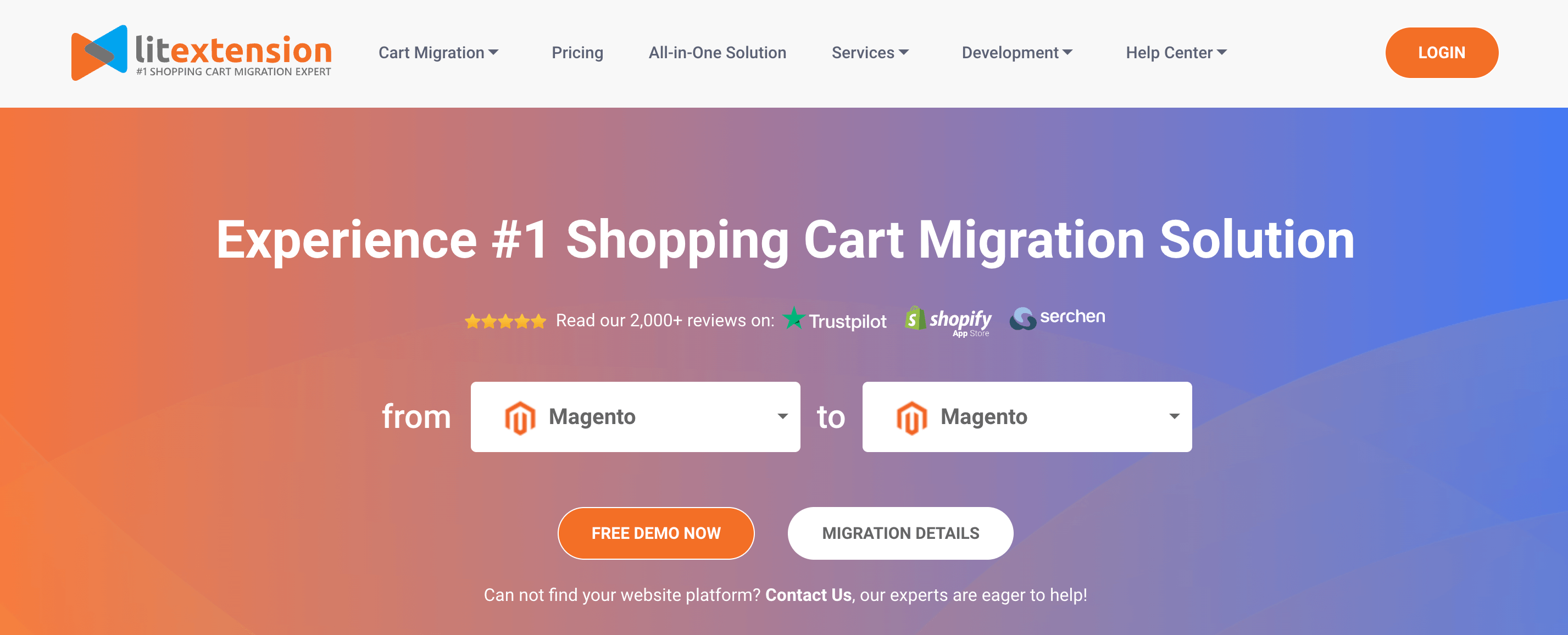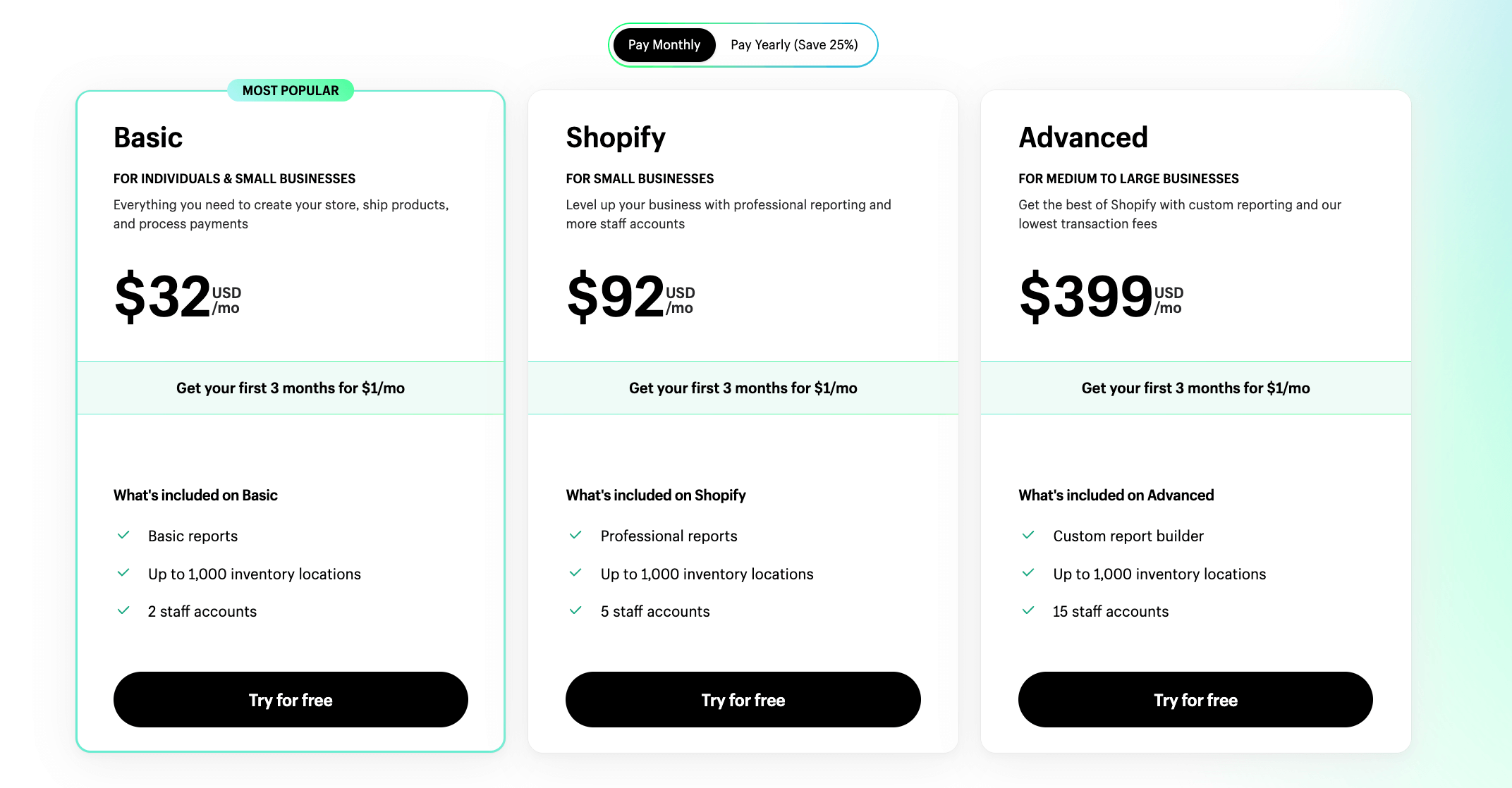Migrate Magento 1 to Magento 2. A Comprehensive Comparison of migration . Boost Your E-commerce Success.
 August 29, 2023
August 29, 2023 Migrate Magento 1 to Magento 2 or Another Platform. In the world of e-commerce, Magento has long been a popular choice for businesses looking to build and manage their online stores. Magento 1, the original version of the platform, has served many businesses well over the years. However, with the release of Magento 2, many store owners are now faced with the decision of whether to migrate to the newer version or explore other platforms. This article aims to provide a comprehensive comparison of migrating from Magento 1 to Magento 2 or another platform, helping you make an informed decision for your e-commerce success.
Why Migrate from Magento 1 to Magento 2?
Before diving into the specifics of migrating from Magento 1 to Magento 2, it's important to understand why such a migration may be necessary. Magento 2 offers a wide range of improvements and enhancements compared to its predecessor. These include enhanced performance and scalability, improved checkout process, better security features, and a more intuitive admin interface. By migrating to Magento 2, you can take advantage of these improvements and provide a better shopping experience for your customers.
Benefits of Migrating to Magento 2
Migrating from Magento 1 to Magento 2 comes with a host of benefits that can significantly enhance your e-commerce success. Firstly, Magento 2 offers improved performance, allowing your website to handle more traffic and load pages faster. This can lead to higher conversion rates and improved customer satisfaction. Additionally, Magento 2 provides better scalability, allowing your store to grow and adapt to changing business needs. The platform also offers a streamlined checkout process, reducing cart abandonment and increasing sales.
Furthermore, Magento 2 includes advanced security features, protecting your store and customer data from potential threats. The platform's improved admin interface makes it easier for store owners and administrators to manage their online stores, with a more user-friendly and intuitive design. Lastly, Magento 2 offers a wide range of extensions and integrations, allowing you to enhance your store's functionality and integrate with other business tools seamlessly.
Challenges of Migrating from Magento 1 to Magento 2
While the benefits of migrating to Magento 2 are clear, it's important to acknowledge the challenges that come with the migration process. One of the main challenges is the complexity of the migration itself. Magento 2 is a significant upgrade from Magento 1, requiring careful planning and execution to ensure a smooth transition. Additionally, migrating to Magento 2 may require updating or rewriting custom extensions and themes, which can be time-consuming and costly.
Another challenge is data migration. Moving product catalogs, customer information, and order history from Magento 1 to Magento 2 can be a complex task. However, Magento 2 provides data migration tools that can help simplify the process. These tools allow you to map and transfer data from your Magento 1 store to Magento 2, minimizing the risk of data loss or corruption.
Steps to Migrate from Magento 1 to Magento 2
To successfully migrate from Magento 1 to Magento 2, it's important to follow a systematic approach. The following steps outline the general process:
- Planning and Analysis: Begin by evaluating your current Magento 1 store and identifying the extensions, themes, and customizations that need to be migrated. Analyze your data and determine which components can be transferred to Magento 2.
- Setting up Magento 2: Install and configure a fresh instance of Magento 2 on your server. Customize the store's design and configure essential settings.
- Data Migration: Use Magento's data migration tools to transfer your product catalogs, customer information, and order history from Magento 1 to Magento 2. Ensure that the data is mapped correctly and verify the integrity of the transferred information.
- Theme and Extension Migration: If you have custom themes or extensions in your Magento 1 store, you will need to either update them to be compatible with Magento 2 or find alternatives that offer similar functionality. Install and configure these themes and extensions in your Magento 2 store.
- Testing and Optimization: Thoroughly test your Magento 2 store to ensure that all functionalities are working correctly. Optimize your store's performance and security settings to ensure a smooth and secure shopping experience for your customers.
- Go Live and Post-Migration Support: Once you are confident that your Magento 2 store is ready, switch your domain to point to the new store and go live. Provide post-migration support to address any issues or concerns that may arise.
Data migration tool Magento 2
Magento 2 provides a set of data migration tools specifically designed to simplify the process of transferring data from Magento 1 to Magento 2. These tools allow you to map and transfer product catalogs, customer information, and order history seamlessly. Some popular data migration tools for Magento 2 include:
Magento data migration
- Magento Migration Tool: This official tool provided by Magento simplifies the process of migrating data from Magento 1 to Magento 2. It supports various data entities and allows for incremental migration.
- Cart2Cart: Cart2Cart is a popular migration service that supports migrating from Magento 1 to Magento 2. It offers a user-friendly interface and provides options for data transfer and customization.
- LitExtension: LitExtension is another migration service that supports moving data from Magento 1 to Magento 2. It offers a range of additional features, such as preserving SEO URLs and customer passwords during the migration process.
Using these tools can significantly simplify the data migration process and minimize the risk of data loss or corruption.
Migrate Magento 1 to Magento 2: Costs and Considerations
When considering a migration from Magento 1 to Magento 2, it's important to take into account the associated costs and considerations. The cost of migration can vary depending on factors such as the complexity of your current store, the extent of customizations, and the amount of data to be transferred. It's recommended to consult with a Magento migration service or development agency to get an accurate estimate of the migration cost.
Additionally, consider the potential impact on your business during the migration process. Migrating from Magento 1 to Magento 2 may require temporarily suspending your online store or limiting certain functionalities. Plan the migration during a period of low traffic or sales to minimize the impact on your business operations.
Alternative Platforms to Consider when Migrating from Magento 1
While Magento 2 is a powerful and popular choice for migrating from Magento 1, it's worth exploring alternative platforms to ensure you make the right choice for your e-commerce success. Some alternative platforms to consider include:
- Shopify: Shopify is a user-friendly and scalable e-commerce platform that offers a wide range of features and integrations. It's known for its simplicity and ease of use, making it an attractive option for small to medium-sized businesses.
Transferring a store from Magento 1 to Shopify or Magento 2 involves various factors that need to be considered, and the decision of which platform to migrate to depends on your specific business requirements and goals. Let's explore the reasons why migrating from Magento 1 to Shopify might be preferred over migrating to Magento 2:
- Ease of Use and Maintenance:
- Shopify is known for its user-friendly interface and ease of use. It requires minimal technical expertise, making it a great choice for small to medium-sized businesses that may not have dedicated IT teams.
- Magento 2, while an improvement over Magento 1, can still be complex and resource-intensive to set up and maintain, requiring more technical know-how.
- Cost-effectiveness:
- Magento 2 can involve higher development and maintenance costs due to its complexity, including hosting, development, security, and ongoing updates.
- Shopify's pricing structure is more straightforward, and it includes hosting, security, and updates in a single package, making it potentially more cost-effective, especially for smaller businesses.
- Speed and Performance:
- Shopify is a cloud-based platform that offers optimized performance and speed out of the box. This can be crucial for providing a smooth shopping experience and improving conversion rates.
- Magento 2 requires more careful server configuration and optimization to achieve similar performance levels, which may require additional resources and technical expertise.
- Scalability:
- While Magento 2 is more scalable than Magento 1, it may still require more resources and management to handle high traffic and large product catalogs effectively.
- Shopify's infrastructure is designed to handle scalability seamlessly, making it a good choice for businesses expecting significant growth.
- App Store and Integrations:
- Shopify has a well-developed app store with a wide range of third-party integrations, allowing you to extend your store's functionality without extensive custom development.
- Magento 2 also offers an ecosystem of extensions, but Shopify's app store is known for its user-friendly integration process.
- Security and Updates:
- Shopify takes care of security and updates on its platform, ensuring that your store is protected against vulnerabilities and potential security threats.
- Magento 2 requires more active management to keep the platform updated and secure, which can be challenging for businesses without dedicated technical teams.
- Migration Complexity:
- Migrating from Magento 1 to Magento 2 can be a complex process due to differences in architecture and database structures. It may require substantial development work and testing to ensure a smooth transition.
- Migrating from Magento 1 to Shopify can be a more straightforward process since the platforms have fewer architectural differences. This can lead to reduced migration time and costs.
In summary, migrating from Magento 1 to Shopify might be preferable due to its ease of use, cost-effectiveness, performance benefits, scalability, integration options, security, and simplified migration process. However, it's important to carefully assess your business needs and consult with experts to make the best decision for your specific situation.
Let's delve into some specific examples to illustrate why migrating from Magento 1 to Shopify might be a more advantageous choice over migrating to Magento 2:
- Ease of Use and Maintenance: Example: A small boutique clothing store with limited technical resources might find Shopify's intuitive dashboard and user-friendly tools more manageable than dealing with the complexities of Magento 2's admin interface. They can easily update product information, manage orders, and customize the store without extensive technical knowledge.
- Cost-effectiveness: Example: A startup selling handmade crafts might appreciate Shopify's transparent pricing, which includes hosting and security. The business can avoid additional costs associated with Magento 2, such as dedicated server hosting and potential ongoing development expenses.
- Speed and Performance: Example: An online electronics retailer experiences high traffic during holiday sales. By migrating to Shopify, they benefit from its fast-loading infrastructure, ensuring that their site remains responsive even during traffic spikes. This leads to reduced bounce rates and increased customer satisfaction.
- Scalability: Example: A subscription box service has plans to rapidly expand its product offerings. Choosing Shopify provides them with a platform that can effortlessly scale to accommodate their growing catalog and customer base, without the need for constant monitoring and optimization like in Magento 2.
- App Store and Integrations: Example: A beauty products store wants to implement a loyalty program. With Shopify's app store, they can easily find and integrate a loyalty program plugin that aligns with their needs. In contrast, Magento 2 might require more custom development to achieve a similar integration.
- Security and Updates: Example: A gourmet food retailer doesn't have a dedicated IT team. Migrating to Shopify ensures that their store is consistently updated and secured without their direct involvement. This frees up their time to focus on business growth rather than managing technical aspects.
- Migration Complexity: Example: An online bookstore is looking to migrate from Magento 1. Since Magento 2 has substantial architectural differences from Magento 1, the migration process involves a lot of custom development and potential data mapping. Opting for Shopify streamlines the migration process as it offers dedicated tools and services to ease the transition.
Remember, these examples are not exhaustive and the choice between Shopify and Magento 2 heavily depends on your unique business requirements, existing resources, growth plans, and technical capabilities. It's recommended to consult with e-commerce experts or developers to assess the best fit for your business before making a decision.
- WooCommerce: WooCommerce is a popular e-commerce plugin for WordPress. It offers a flexible and customizable solution, allowing businesses to leverage the power of WordPress for their online stores.
- BigCommerce: BigCommerce is a cloud-based e-commerce platform that provides a robust set of features and scalability. It offers a range of built-in functionalities and integrations, making it suitable for businesses of all sizes.
When considering alternative platforms, evaluate their features, pricing, scalability, and ease of migration to make an informed decision.
Hiring a Magento Migration Service. Magento 1 to Magento 2 migration service. Upgrade magento 1 to 2
Migrating from Magento 1 to Magento 2 can be a complex and time-consuming process. If you lack the technical expertise or resources to handle the migration yourself, it's advisable to hire a professional Magento migration service. These services specialize in Magento migrations and have the knowledge and experience to ensure a smooth and successful transition. They can handle tasks such as data migration, theme and extension migration, and post-migration support, allowing you to focus on running your business.
When choosing a Magento migration service, consider factors such as their experience, reputation, pricing, and customer support. Request case studies or testimonials to gauge their track record and ensure they are capable of delivering the results you desire.
Case Studies of Successful Magento 1 to Magento 2 Migrations
While every migration is unique, looking at case studies of successful Magento 1 to Magento 2 migrations can provide valuable insights and inspiration for your own migration journey. These case studies highlight the challenges faced, strategies employed, and the positive outcomes achieved. They can help you understand the potential benefits and pitfalls of migrating to Magento 2 and provide guidance for a successful migration.
Conclusion: Making the Right Choice for Your E-commerce Success
Migrating from Magento 1 to Magento 2 or another platform is a significant decision that can impact the success of your e-commerce business. Magento 2 offers a range of improvements and enhancements that can enhance your store's performance, security, and user experience. However, it's important to carefully consider the challenges and costs associated with the migration process.
Evaluate the benefits and drawbacks of migrating to Magento 2, explore alternative platforms, and consider hiring a Magento migration service if needed. By making an informed decision and following a systematic migration process, you can ensure a smooth and successful transition, setting the stage for your e-commerce success.
In conclusion, the decision to migrate from Magento 1 to either Shopify or Magento 2 is a significant one, and it should be guided by your specific business needs and circumstances. While both platforms offer advantages, opting to migrate to Shopify presents several compelling benefits that can positively impact your e-commerce journey:
- Simplicity and User-Friendly Experience: Shopify's intuitive interface and user-friendly tools make it an excellent choice, particularly for businesses with limited technical expertise or smaller teams.
- Cost-Effectiveness: Shopify's transparent pricing model, which includes hosting, security, and updates, can lead to reduced costs compared to the potentially complex and resource-intensive nature of Magento 2.
- Performance and Scalability: Shopify's cloud-based infrastructure ensures optimized performance and seamless scalability, essential for delivering a smooth shopping experience and accommodating business growth.
- App Store and Integrations: The extensive Shopify app store simplifies the process of extending your store's functionality, offering a wide range of integrations that can enhance customer experience and streamline operations.
- Security and Maintenance: Shopify's managed platform ensures ongoing security and updates, reducing the burden of maintenance and allowing you to focus on business growth and customer engagement.
- Migration Simplification: Migrating from Magento 1 to Shopify can be smoother due to fewer architectural differences, resulting in a potentially quicker and more cost-effective transition.
While Magento 2 also offers improvements over Magento 1, Shopify's all-in-one approach, ease of use, and robust ecosystem make it a compelling choice for many businesses seeking a seamless transition and a platform that aligns with their growth objectives. However, it's crucial to conduct a thorough evaluation of your business requirements, consider the advice of e-commerce experts, and potentially engage with developers who specialize in platform migrations before making a final decision. This way, you can ensure that your chosen platform not only meets your immediate needs but also supports your long-term success in the dynamic world of online retail.
Contact Mgroup to discuss your Magento migration needs and receive expert guidance and support throughout the migration process.











